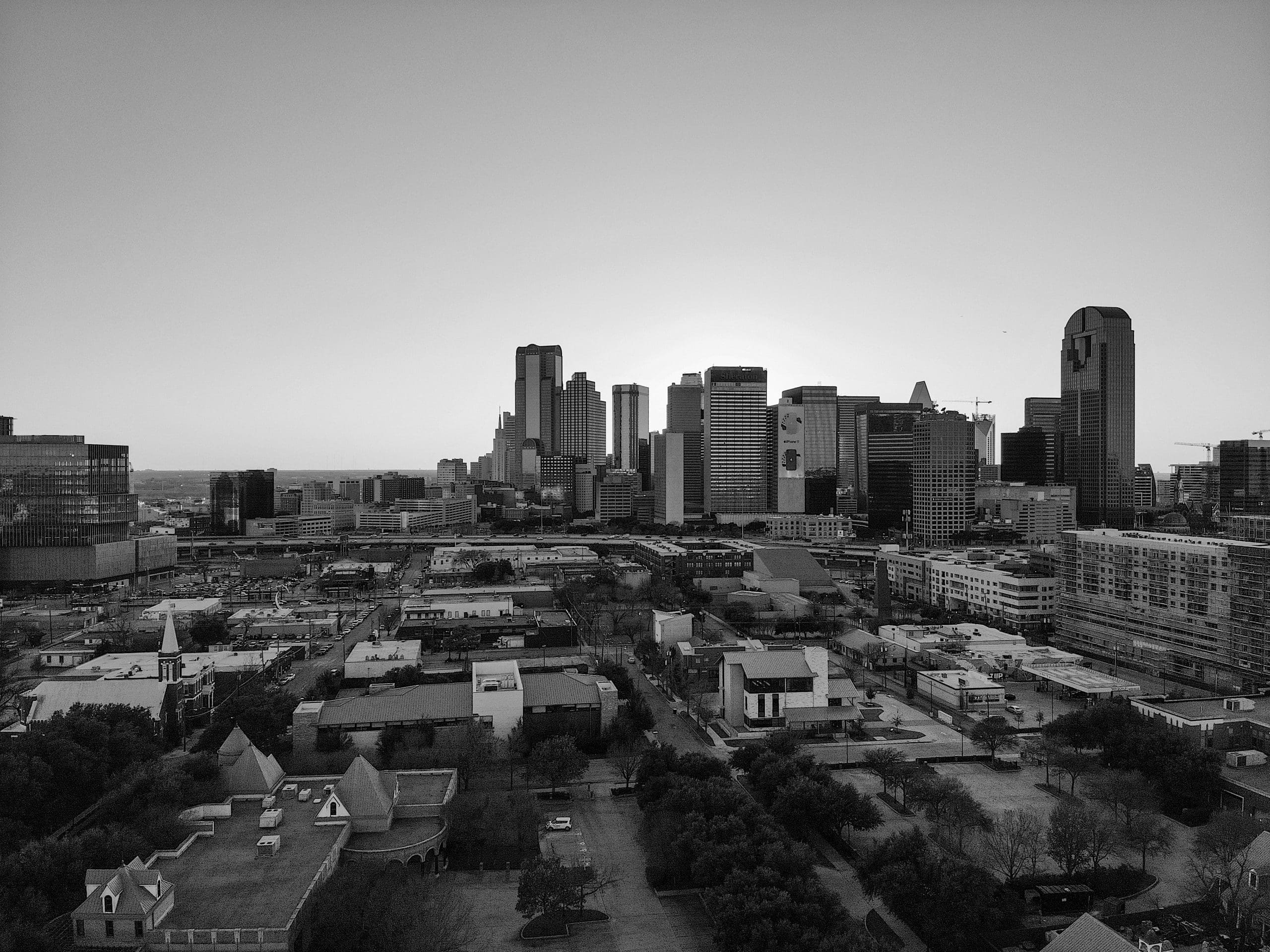Dallas’ latest crime report revealed a shocking increase in kidnappings and drug crimes in the city compared with this time last year, as well as increases in arson, aggravated assault, and homicide. These increases, combined with issues concerning arrests and 911 calls, come as a citizen organization demands a plan to deal with possible riots this election.
At Monday’s meeting of the Dallas Public Safety committee, the city presented its crime report for September 2020.
Compared with the report from this time last year, kidnapping crimes have skyrocketed over 128 percent, aggravated assault increased by more than 7 percent, and homicides are up by nearly 6 percent.
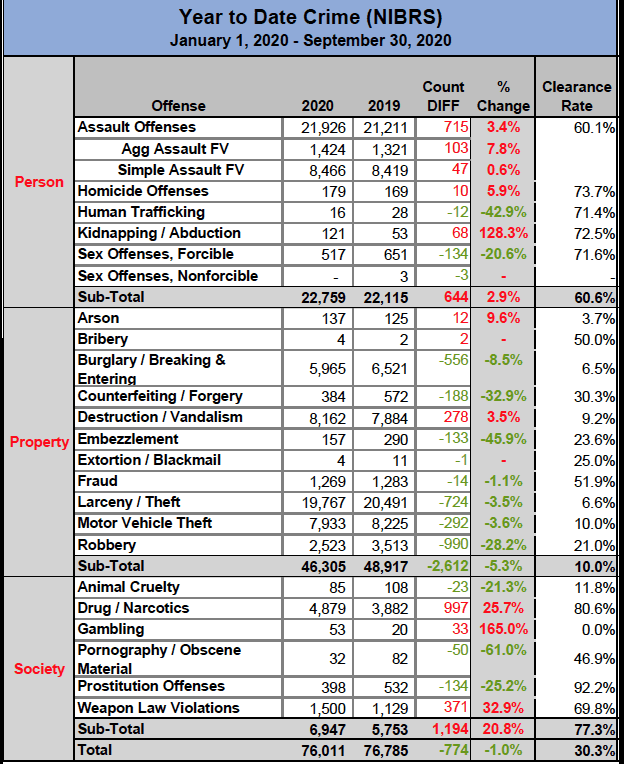
Arson and destruction are over 9 percent and 3 percent higher, respectively. Drugs are up over 25 percent, and weapons violations increased more than 32 percent.
As of now, Dallas is on track to break last year’s tragically record-setting number of homicides.
“We need more police officers,” Dallas police told council members, reporting that Dallas detectives have a larger case load than the national average. “We need detectives. We need additional resources.”
Compared with last year, there was also a significant drop in arrests this June, the month the Dallas riots occurred.
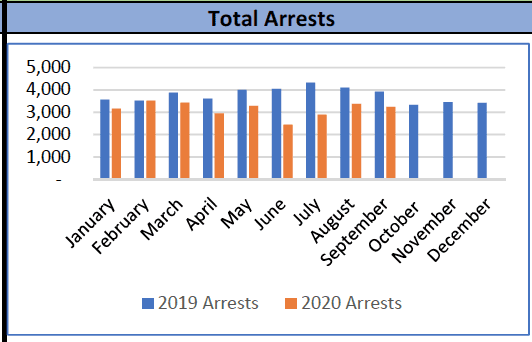
So far, the trend of fewer arrests in 2020 continues.
Those with violent crime warrants are not consistently staying in jail when arrested, according to a report from Deputy Chief of Police Teena Schultz that showed all individuals arrested with such warrants on September 28 are not behind bars.
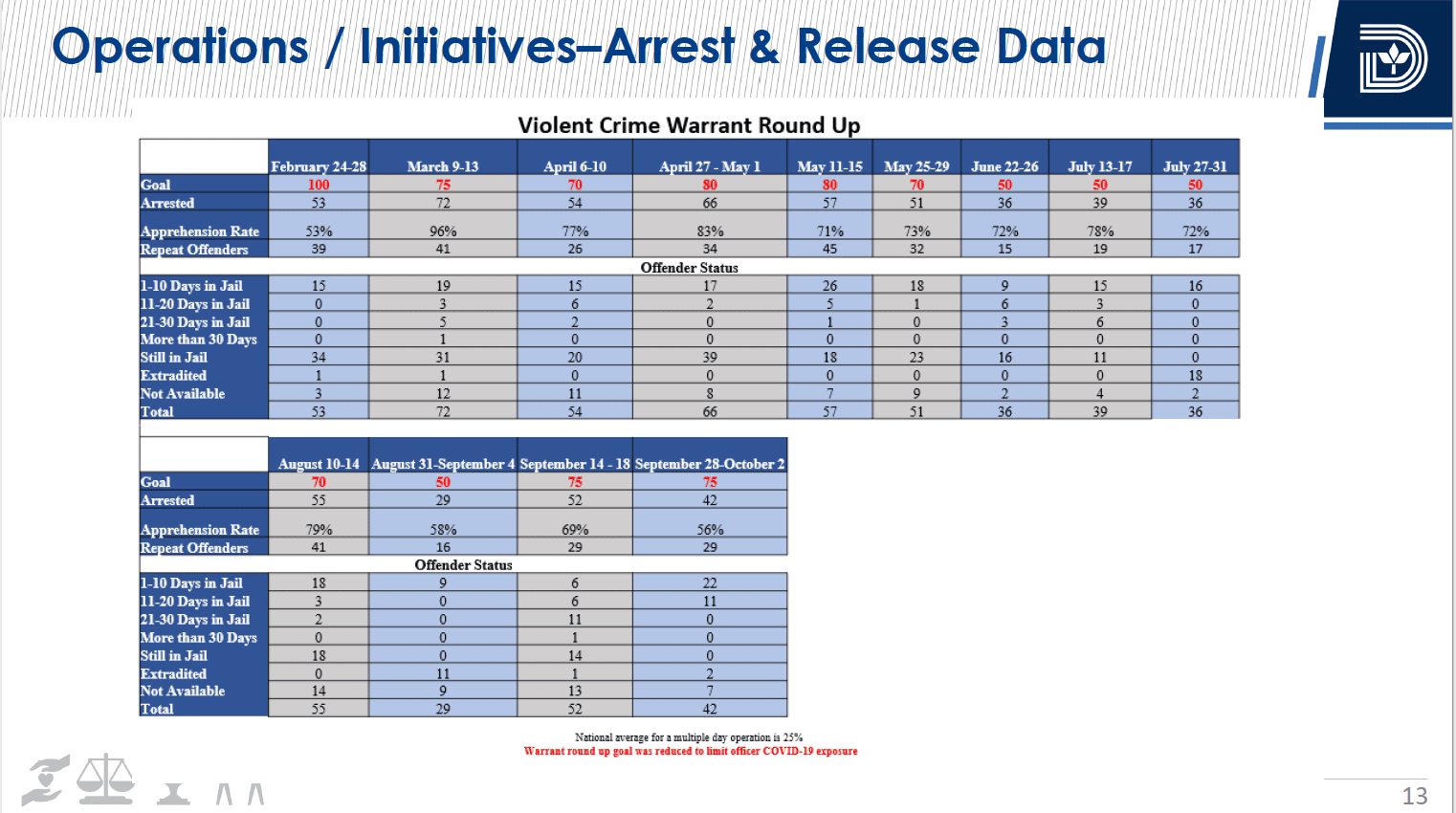
“Do we know why that’s happening?” Committee Chair McGough asked.
“They’re able to post their bonds when it’s assessed to them by the courts,” Schultz replied. “What we do not have control over is how long they stay in jail,” Police Chief Renee Hall added.
Citizens in south Dallas brought up other issues earlier this year, such as the need for more police protection and shorter 911 wait times. The average wait time in September for a 911 call to be answered was 122.4 seconds.
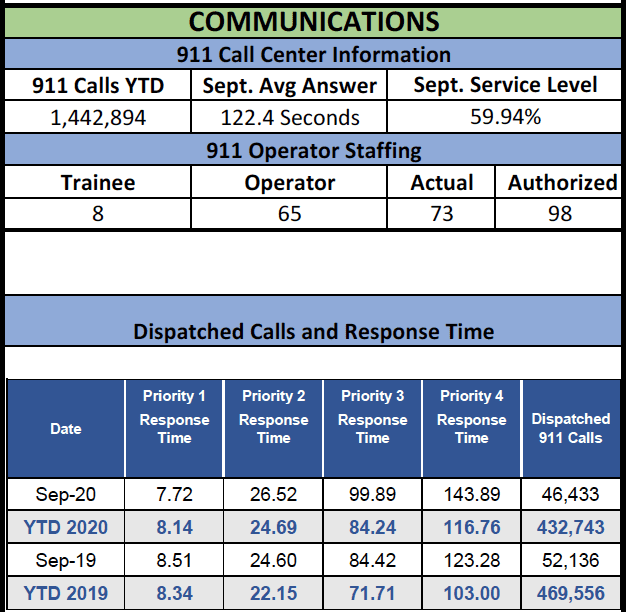
Priority 1 calls involve incidents such as active shooters, whereas Priority 2 calls can be a major accident. Priority 3 calls are often minor accidents, and Priority 4 calls can be issues such as abandoned property.
The average response time for Priority 1 calls in September was over 7 minutes, and the response time for Priority 2 calls was over 26 minutes. (Response times for priority two calls in all sectors are over 20 minutes.)
The response times listed in red below are over the city’s goal.

The data also shows a large number of 911 callers are hanging up.
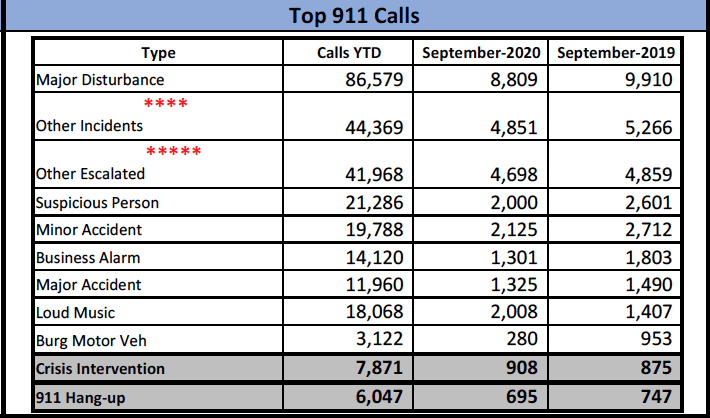
When Councilmember Cara Mendelsohn asked about the reason for this, DPD’s replied, “The citizens on hold believe if they hang up and call back, they will get a faster response.”
But in fact, callers lose their place in line when they hang up.
“I was getting phone calls from my constituents that they couldn’t get through,” Councilmember David Blewett said Monday, regarding 911 calls during the riots.
“911 calls go on hold for 10 minutes or more,” former Dallas City Council candidate Warren Johnson posted online.
“The reality is that we’re very short-staffed,” DPD told the committee.
On September 23, a majority of council voted to raid $7 million of taxpayer money from the Dallas police overtime budget. In response to citizen outrage, council abandoned their original plan and budgeted over $3.8 million of it towards hiring 95 civilians to swap an equal number of sworn police officers from desk work to patrol.
The move did not satisfy citizens, who protested on October 2 and have called the move “defunding the police.”
Only Mayor Eric Johnson and Councilmembers Mendelsohn, McGough, and Jennifer Gates voted against the raid.
Councilmember Paula Blackmon recently wrote an editorial claiming public safety was fully funded and calling for unity as council prepares for future action on public safety and the budget. She also wrote that certain communities have said they’re over-policed.
“I defy her to find a community feeling over-policed other than the criminal community,” Warren Johnson replied. “We all feel abandoned by DPD and city council.”
The citizen organization Keep Dallas Safe also responded to Blackmon.
“What Keep Dallas Safe is asking is for the council to provide a specific plan to address the violence and vandalism they have allowed to occur,” the organization said in a statement. “However, they would rather capitulate to popular politics than keep Dallas residents safe.”
Keep Dallas Safe has demanded a plan to prepare for possible riots as a result of this year’s election, to which Mayor Eric Johnson responded by making it a priority for the Public Safety Committee.
Concerned voters may contact the Dallas City Council and Mayor Johnson.
Lee Kleinman: sophia.figueroa@dallascityhall.com; 214-670-7817
Adam Medrano: adam.medrano@dallascityhall.com; 214-670-4048
Tennell Atkins: maria.salazar2@dallascityhall.com; 214-670-4066
Adam Bazaldua: Yesenia.Valdez@dallascityhall.com; 214-670-4689
David Blewett: david.blewett@dallascityhall.com; 214-670-5415
Adam McGough: adam.mcgough@dallascityhall.com; 214-670-4068
Chad West: Chad.West@dallascityhall.com; 214-670-0776
Casey Thomas: richard.soto@dallascityhall.com; 214-670-0777
Carolyn King Arnold: District4@DallasCityHall.com; 214-670-0781
Jaime Resendez: jaime.resendez@dallascityhall.com; 214-670-4052
Tennell Atkins: maria.salazar2@dallascityhall.com; 214-670-4066
Paula Blackmon: District9@DallasCityHall.com; 214-670-4069
Adam McGough: adam.mcgough@dallascityhall.com; 214-670-4068
Cara Mendelsohn: cara.mendelsohn@dallascityhall.com; 214-670-4067
David Blewett: david.blewett@dallascityhall.com; 214-670-5415
Jennifer Gates: jennifer.gates@dallascityhall.com; 214-670-7057
This article has been updated since publication.
